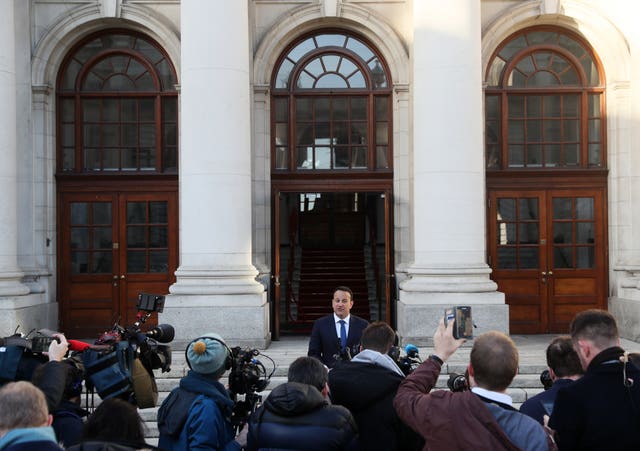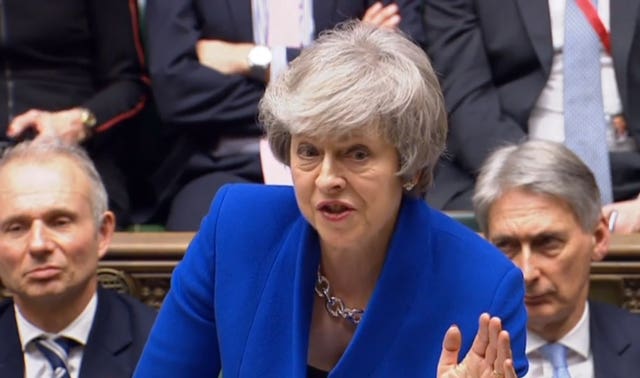Onus on Westminster to find Brexit solutions, says Varadkar
The Irish premier said if the UK evolved its red lines on the Customs Union and access to the Single Market then the EU could do likewise.

The onus is on Westminster to find solutions to the Brexit impasse which the EU and Ireland can accept, Taoiseach Leo Varadkar has said.
The Irish premier said if the UK evolved its red lines on the Customs Union and access to the Single Market then the EU could do likewise.
He said he profoundly regretted the vote by MPs to reject the proposed Withdrawal Agreement.
“We should never forget that Brexit is a British policy that originated in Westminster,” he said.

He recalled the months of negotiations involved in crafting the draft agreement.
“That solution has now been rejected by Westminster, the problem now lies there,” he added.
“The onus is on Westminster to come up with solutions that they can support, but they must be solutions that the EU and Ireland can accept.
“We have always said that if the UK were to evolve from its red lines on the Customs Union and the Single Market, that the European position would evolve also.”
Mr Varadkar was addressing a news conference on Brexit in Dublin.
He said Ireland’s plans for a no-deal are no longer theoretical and are actively moving towards implementation.
The statement comes just one day after announcing a Brexit Omnibus Bill, a preemptive legislative Bill to tackle potential fallout from no-deal.

“Our plans for a no-deal exit will continue – they are no longer contingency plans, they are being implemented by government. Now businesses and other organisations, if they’re not doing so, must do the same,” he said.
“For government, this involves legislation including the Omnibus Bill and preparations at ports and airports for customs and SPS (Sanitary and Phytosanitary) checks.”
He warned: “A no-deal scenario would have a deeply negative impact on jobs, on the economy, particularly the traded and agri-food sectors, our farmers and fishermen, our rural economy, our businessmen and women all over the country.
“A no-deal scenario would not protect the peace in Northern Ireland, so we have to work hard to avoid it.”
When asked whether he believed a change of prime minister would aid the process of finding an agreeable solution to withdrawal, Mr Varadkar said it was a matter for the British people.
“I don’t believe so, but again that’s a matter for the British people and the House of Commons and we’ll be willing to work with whoever it is,” he said.





